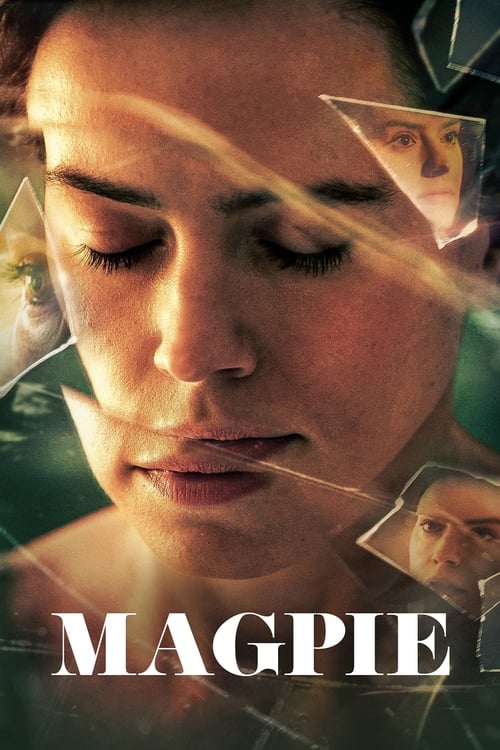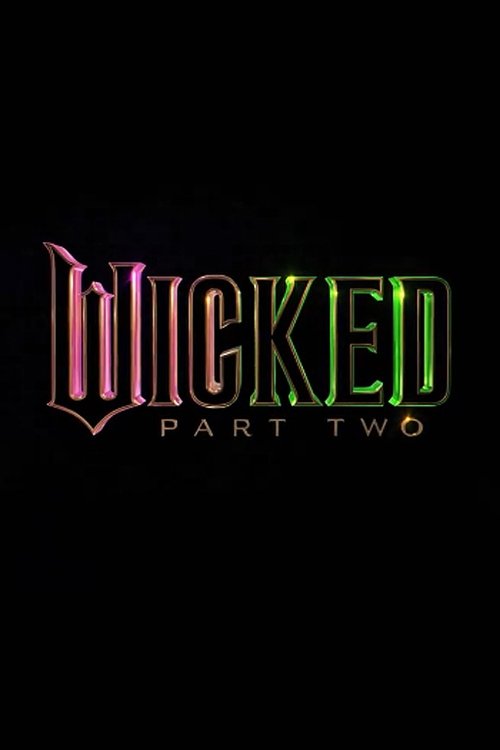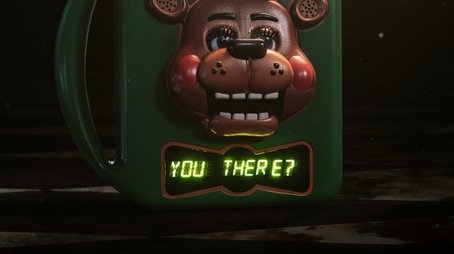
Ask Your Own Question
What is the plot?
Ben drives his daughter Matilda to a period-drama film set outside their rural home, acting as her chaperone while she rehearses and films scenes alongside a high-profile actress named Alicia. Alicia arrives on set under the shadow of a recent sex tape scandal that has saturated tabloids, yet she behaves with a gentle, maternal patience toward children. She takes time with Matilda between takes, guiding the little girl's responses and sharing quiet, warm moments that draw Matilda to her. Ben, a writer by trade, is friendly and protective during these visits; he observes Alicia's attention to his daughter and begins to enjoy the easy camaraderie that grows between them on long shooting days.
At home, Ben's wife Anette tends their newborn son Lucas and cares for their household while Ben juggles his writing and the family's move to the countryside. Over the years their marriage has cooled: Anette resents having left her job when Ben insisted on relocating, and she endured an eight-month separation while he attended a writer's retreat alone. She is quiet and watchful; Ben seems distracted by work. The contrast between Alicia's outgoing kindness toward Matilda and the distance in Ben and Anette's marriage becomes a strain. When a tabloid prints a photograph of Ben and Alicia together off set, Anette's unease sharpens into suspicion. She hides the image, then, one night while Ben sleeps, she slips his phone from the bedside table and scans his messages. What she finds are texts exchanged between Ben and Alicia--friendly at first and then, in Anette's reading of them, flirtatious. The discovery hardens the suspicion that Ben is emotionally betraying her.
The next day on location, Alicia approaches Ben about the tabloid photo and apologizes for the uncomfortable publicity. Ben brushes the apology off and tells her he does not mind; he even admits he found the attention somewhat flattering. The pair continue to message privately, and the tone of their exchanges shifts progressively toward intimate banter. They begin sending suggestive texts, and at night they craft private jokes that exclude Anette. Matilda remains oblivious to the adults' messages; she delights in Alicia's company and in the pretend mother-daughter interactions they play out between scenes.
On a day when filming pauses, Anette takes Matilda and Lucas to a nearby park while Ben stays home. There she encounters an acquaintance who mentions Ben's past infidelities, a casual remark that lands heavily. Later, while home alone, Ben receives a provocative message from Alicia suggesting they meet while he is available. He replies that he will, but when Anette returns sooner than he expects, he cancels quickly. Ben's composure frays at moments; he flirts through his thumbs and then tightens his tone when his wife reappears. Anette notices his odd behavior and files it away with the earlier discovery on his phone.
Shortly after that, Ben becomes ill the morning after a late dinner at home. He is feverish and weak; Anette stays home to nurse him while she takes Matilda to the lot in his stead. At the set, she watches Matilda and Alicia perform scenes in which they embody a mother-daughter relationship. Anette sees Alicia teach Matilda how to respond to direction, how to relax into a hug on cue, and how to look comfortable in a way that Anette thinks she herself no longer is. She hears crew members comment about how natural Alicia is with children, and she learns the kinds of games and role-play Alicia and Matilda have shared during rehearsals. Each small, affectionate interchange feels to Anette like a further erosion of her place in Matilda's life; she grows fearful that her daughter may prefer Alicia's warmth and casual affection to Anette's more constrained caregiving.
When Ben recovers a few days later, he takes Matilda back to set. Between scenes someone sends him a curt text directing him to one of the trailers. Matilda is allowed to bring her small video camera onto the lot to record herself acting; Ben watches footage Matilda has recorded and sees Alicia alone in the trailer performing a striptease for the camera. The sequence is intimate: Alicia removes articles of clothing, teases with a smile, and moves in a manner Ben interprets as private and provocative toward him. Shocked and guilty, Ben looks up from the screen only to be told that Matilda has wandered off on the crowded set. He abandons the feed to search for his daughter, panicked about the child's safety. Anette arrives pointedly to the set and finds Matilda before he does. She chastises him in front of crew members for failing to supervise their child closely and uses the moment to underline how his secretive attachments have already put the family at risk.
Filming proceeds over the next days, and on the final day Anette deliberately brings Matilda to the set early, making sure Ben does not wake. Ben sleeps through the morning and remains home with Lucas while Anette and Matilda complete the last shots with Alicia. That afternoon, after Matilda finishes her last scene, Anette invites Alicia for dinner at their house. She tells no one her true motive; she says only that she wants to thank Alicia for taking care of Matilda during production, but she has engineered the invitation as a test. Ben returns from his nap surprised to discover Alicia as a guest by the kitchen table. Anette listens as Ben stammers, and she drops conversational hints about what she knows. She speaks in casual tones that still carry accusation: she mentions the tabloid photograph and alludes to messages he has been sending, and she tells Alicia that Ben had once described his wife as cold and distant to this other woman. Ben grows defensive. Alicia, confronted with the idea that Ben has lied about his marriage, tells Matilda goodbye and refuses to engage further in the pretense Anette has suggested. Her composure becomes cool and measured rather than abashed; she will not be the instrument of Ben's betrayal.
Ben snaps. He shouts at Anette with a kind of desperate rage, accusing her of spying, of controlling him, of poisoning his life. He tells her he is done and that he will divorce her. He storms out of the house, slams his car door, and drives away. He navigates narrow, wooded lanes that wind through the countryside where they now live, his hands tight on the wheel, his breath ragged. Somewhere along a twisting stretch of road he pulls to the side and attempts to call Alicia, seeking confirmation, explanation, or perhaps the promise of a relationship that he has imagined in the messages and in the filmed moment. When Alicia answers, Ben is ready to spill everything; he expects her voice to be the same as in the messages. Instead, he hears Anette speaking on the line.
Anette's voice tells him that she swapped her own telephone number into Alicia's contact on his phone without his knowledge; she had been intercepting their entire exchange. She calmly reveals that every suggestive message he thought he was exchanging with Alicia had been addressed to his wife. She then explains that when Ben watched the footage on Matilda's camera--imagining it to be Alicia performing for him--the woman in the trailer was not Alicia at all but Anette, disguised to resemble the actress and to simulate the intimacy Ben craved. The striptease he had witnessed was staged by Anette as a trap. The voice Ben now hears is the same woman who had read his messages, shifted the contact details, and engineered the domestic theater to expose his disloyalty. The revelation rearranges the events: the flirtation he believed he had enjoyed was, from its inception, a fabrication, and the warmth he perceived in Alicia was being used by Anette to test and punish him.
Stunned by the confessions and enraged by the humiliation, Ben loses focus on the road. He grips the steering wheel, hears his wife's voice through the speaker, and swerves. The car veers off the rural road into the trees; the last image the film offers is of metal crumpling and glass shattering. The camera lingers on the wrecked vehicle caught among trunks and underbrush as sunlight filters through the canopy. The narrative closes on that image of destruction, leaving Ben's physical state and survival uncertain. No other character dies during the sequence; Matilda and Lucas are left safe at home with Anette at the moment of the crash. The final frame shows the aftermath of Ben's loss of control on the wooded lane and ends with the scene of the car, its future unclear and the consequences of the deception laid bare.
What is the ending?
At the end of Magpie (2024), Anette confronts the reality of her husband Ben's infidelity with Alicia, the actress co-starring with their daughter Matilda. The marriage, already strained by Ben's neglect and controlling behavior, reaches a breaking point. Anette takes control of her life, distancing herself from Ben, who remains entangled in his affair and self-absorption. The film closes on Anette's emotional and psychological liberation, while Ben's fate is left ambiguous but marked by his continued detachment and moral failure.
The ending unfolds scene by scene with detailed narrative clarity:
The film's climax begins with Anette growing increasingly suspicious of Ben's relationship with Alicia. After finding a tabloid photo showing Ben and Alicia together off-set, Anette's anxiety peaks. She steals Ben's phone while he sleeps and discovers explicit text messages and sexting between him and Alicia. This moment is pivotal, revealing the depth of Ben's betrayal and the emotional distance he has created within the family.
The next day, on the movie set where Matilda is filming, Alicia approaches Ben and apologizes for the tabloid exposure. Ben, however, dismisses the scandal, even expressing that he finds the attention flattering. Their flirtation intensifies, with Alicia's texts becoming more overtly sexual, and Ben reciprocating, showing his full emotional and moral disengagement from his wife and children.
Meanwhile, Anette is left at home with their newborn, Lucas, managing the household and her fractured family alone. The film visually emphasizes her isolation through tight framing and a tense, claustrophobic atmosphere. Anette's internal turmoil is palpable; her psyche is unraveling under the weight of betrayal and abandonment.
In a key scene, Anette attempts to reconnect with her former employer, signaling her desire to reclaim her identity beyond motherhood and marriage. However, Ben's absence and emotional neglect force her to carry the burden of childcare and family responsibilities alone.
The final scenes focus on Anette's emotional breaking point. She confronts Ben, who remains dismissive and self-centered, unable or unwilling to acknowledge the damage he has caused. Anette's rage and pain culminate in a moment where she physically reacts to her emotional state--leaning against a mirror and cracking it, symbolizing the shattering of her former life and illusions.
The film closes with Anette stepping into a new phase of self-awareness and independence, no longer defined by Ben's controlling presence. Ben's fate is left unresolved but bleak; he remains trapped in his selfish pursuits and infidelity, disconnected from his family.
Matilda, the daughter, is caught in the middle--her burgeoning acting career juxtaposed against the disintegration of her family. Lucas, the newborn, remains a silent witness to the family's collapse.
Thus, the ending of Magpie portrays the dissolution of a marriage under the strain of infidelity, neglect, and control, with Anette emerging as the central figure of resilience amid emotional devastation.
Is there a post-credit scene?
The movie Magpie (2024) does not have a traditional post-credits scene. After the film's conclusion, the credits roll accompanied by the song "Magpie (End Credits Version)" by Piero Messina featuring Emika, but no additional narrative or scene is presented after the credits.
The film ends with a sense of closure regarding the main characters' arcs, particularly Anette's transformation and Ben's fate, but no extra scene or teaser is shown once the credits begin.
What specific actions does Ben take that reveal his infidelity in Magpie?
Ben's infidelity is revealed through his growing obsession with Alicia, the controversial movie star co-starring with his daughter. He flirts with Alicia, spends increasing time with her on set, watches her leaked sex tape, and belittles his wife Anette and daughter Matilda for their family needs. He also engages in explicit text conversations with Alicia, which are shown in intimate close-ups in the film, highlighting his deceit and emotional abandonment of his family.
How does Anette's character change emotionally throughout the film?
Anette transforms from a confident woman into a shell of herself, consumed by rage and frustration due to Ben's infidelity and neglect. Her fracturing psyche is central to the film, depicted through tight camera angles and her volatile emotional state, including a moment where she appears to crack a mirror just by leaning against it. She struggles with Ben's controlling behavior and his abandonment after the birth of their child, which deeply affects her mental state.
What role does the daughter Matilda play in the story's development?
Matilda, the daughter of Anette and Ben, is a young actress cast in a period drama alongside Alicia, the controversial star. Her role is pivotal as it brings Ben into Alicia's orbit, triggering his affair. Matilda's involvement in the film set and her relationship with her parents highlight the family tensions and Ben's neglect, as he prioritizes his obsession with Alicia over his family duties.
How is Ben's attitude towards fatherhood and family depicted in the film?
Ben is portrayed as self-centered and dismissive of his family responsibilities. He considers taking care of his son as 'doing nothing' and is emotionally distant from Anette and the children. His abandonment of Anette for almost a year after their child's birth to focus on writing a book is shown as unforgivable, emphasizing his lack of support and care during a vulnerable time for Anette.
What filmmaking techniques are used to convey the characters' mental states in Magpie?
Director Sam Yates uses visual and auditory techniques to express the characters' internal struggles. Anette is often framed in tight camera angles to emphasize her feeling of being trapped, while Ben's text conversations with Alicia are read aloud in close-ups to reveal his deceit. The inventive score by Isobel Waller-Bridge conveys Anette's troubled mindset and Ben's lustful desire, creating an immersive emotional experience that reflects the characters' psychological states.
Is this family friendly?
Magpie (2024) is not a family-friendly film and is rated R for language and some sexuality. It is a psychological thriller with noir elements, focusing on adult themes of marital strife, jealousy, obsession, and emotional manipulation within a family. The film's tone is tense, unsettling, and at times deliberately uncomfortable, with scenes designed to provoke anxiety and unease in the viewer.
Potentially Objectionable or Upsetting Content
Language: The film contains strong adult language throughout, including profanity used in moments of high tension and emotional outbursts.
Sexuality: There are scenes with sexual content, including infidelity and suggestive interactions between characters. These moments are not gratuitous but are integral to the plot's exploration of betrayal and desire.
Emotional Intensity: The central character, Annette, experiences significant psychological distress. Her emotional state is portrayed with rawness--rage, paranoia, and a sense of unraveling are depicted in vivid detail. There are moments where her anger is so intense it feels almost supernatural, such as a scene where she leans against a mirror and it appears to crack, heightening the sense of her inner turmoil. The film also includes a startling moment where a bird flies into a window, frightening Annette and contributing to the overall sense of dread.
Toxic Relationships: The dynamics between the married couple are fraught with manipulation, gaslighting, and emotional neglect. Ben, the husband, is portrayed as self-absorbed and dismissive, while Annette's feelings of abandonment and betrayal are central to her character arc. The film does not shy away from showing the damaging effects of these behaviors on both adults and, by extension, their children.
Voyeuristic Themes: There are elements of voyeurism and obsession, with characters watching or being watched in ways that feel invasive and unsettling. These scenes contribute to the film's Hitchcockian atmosphere but may be disturbing for sensitive viewers.
Tense Social Situations: Several scenes take place in socially awkward or confrontational settings, such as a dinner party where underlying tensions and jealousies bubble to the surface, creating an atmosphere of discomfort and potential conflict.
General Atmosphere: The cinematography and score work together to create an eerie, sometimes claustrophobic mood, with nighttime scenes and ominous music amplifying the sense of unease. The overall pacing is a slow burn, which may feel oppressive to some viewers, especially younger or more sensitive audiences.
Summary
Magpie is intended for mature audiences due to its adult language, sexual content, intense emotional themes, and psychologically unsettling atmosphere. It explores complex, often painful aspects of marriage and family life, with scenes that could be upsetting or confusing for children or those sensitive to depictions of emotional distress, infidelity, and manipulation. Parents and guardians should exercise caution before allowing younger viewers to watch this film.































